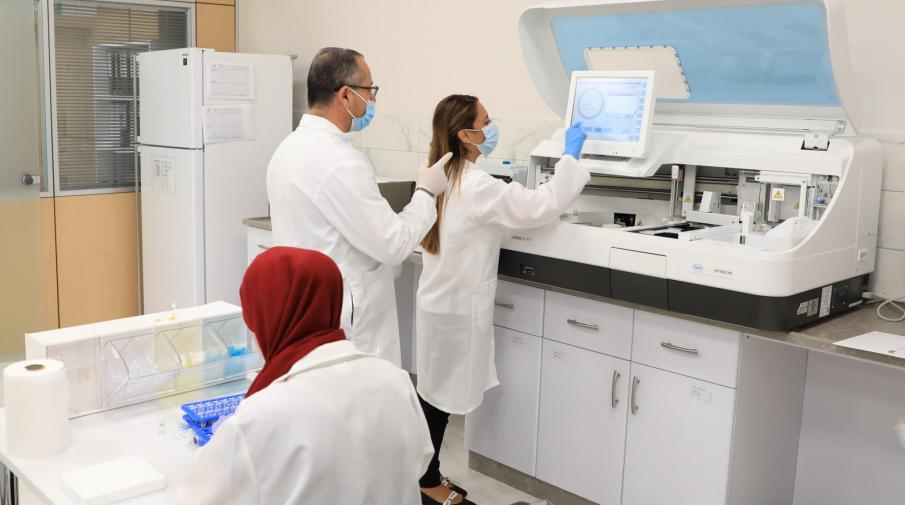In a recent survey study done by the poll center in Arab American University and after a field survey to try to know the rate of people who were infected by COVID-19, it was concluded that the Palestinian people are far from the herd immunity. The rate of the Palestinian people in the West Bank who are actually holding antibodies to the virus is less than 0.5%.
Researchers took over 1335 random samples from Palestinians living in the different cities of the West Bank who agreed to be part of the study. The samples were laboratory tested to find out if there are any COVID-19 antibodies in the participants’ blood.
Results showed that only 0.5% of Palestinian people have antibodies of the virus and concluded that the Palestinian people are far away from the “herd immunity” and is still susceptible to be infected with the virus.
The study compared the results in Palestine to other countries and cities around the world, and listed that the rate is as the following: 1.7% in Denmark, 3.3% in Kobe city, Japan, 5% in Spain, 5.2% in Milano, Italy, 14% in Germany, 4.1% in Los Angeles in California (USA) and 0% in Amman, Jordan.
And so, the Palestinian people are considered to be a good environment to the virus and it can spread easily if they did not follow the safety rules like avoiding the crowded places, social distancing, personal hygiene, or the process of repeatedly washing and sterilizing hands and wearing masks outside the house … etc.
Moreover, when participants were asked about the symptoms associated with COVID-19, it was found that (85%) of them know that the virus can spread through sneezing or coughing droplets, and the majority of (79%) know that the virus can spread if the distance between an infected person and other people is less than 2 meters. Also (83%) know that anyone who contacted an infected person should be isolated for a period of 14 days, while (80%) said that they know that continuous sterilizing, washing hands, wearing masks when they are out of their homes and not socializing or going to crowded places like weddings could limit the spread of the virus.
And finally when participants were asked about their personal practices, 48% said that they did not commit to social distancing and there was an obvious difference between males and females practices as males were less committed than female of a rate of 58% for males and 40% for females.

